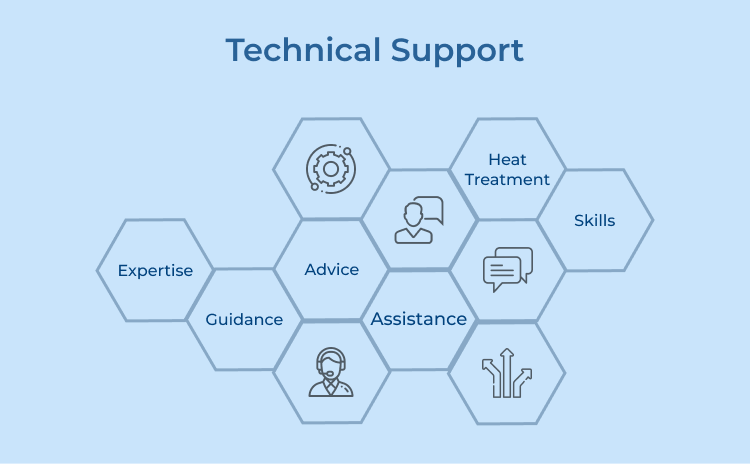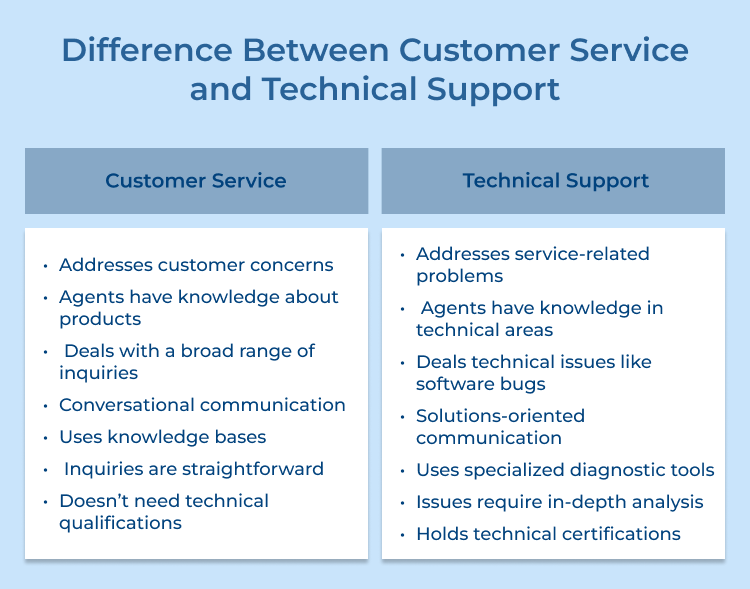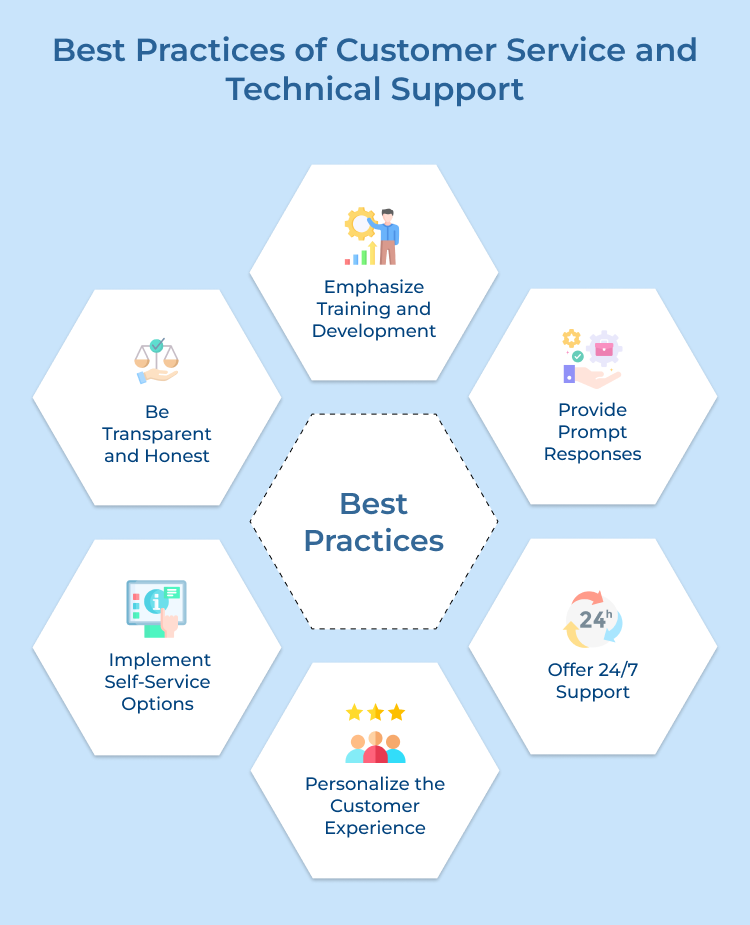Focus and Purpose
Customer Service primarily aims to enhance overall customer experience, handling a wide range of inquiries including product information, orders, billing, and general assistance. It focuses on building positive relationships and ensuring customer satisfaction.
Technical Support, conversely, specifically addresses technical issues and problems related to products or services. Its main goal is to resolve technical difficulties, provide guidance on product usage, and offer solutions to complex technical problems, ultimately ensuring the proper functioning of the product or service.
Expertise and Knowledge
Customer Service representatives typically have broad knowledge about the company’s products, policies, and procedures. They are trained to handle general inquiries and provide basic information.
Technical Support specialists, on the other hand, possess in-depth technical knowledge and expertise related to specific products or services. They understand the intricacies of how systems work, can diagnose complex issues, and provide detailed technical solutions. Their knowledge often extends to troubleshooting, system configurations, and advanced product features.
Types of Inquiries
Customer Service handles a diverse range of inquiries, including product information, order status, returns, exchanges, billing questions, and general company policies. These inquiries are often non-technical and relate to the overall customer experience.
Technical Support deals specifically with technical issues, such as software bugs, hardware malfunctions, network problems, system errors, and product functionality questions. These inquiries require technical knowledge and often involve step-by-step troubleshooting or guidance on using complex features.
Communication Style
Customer Service communication often focuses on empathy, patience, and creating a positive interaction. Representatives use customer-friendly language, aiming to build rapport and ensure customer satisfaction.
Technical Support communication tends to be more precise and technical. While still maintaining professionalism and patience, technical support specialists use more technical terminology, provide detailed instructions, and may engage in more in-depth, problem-solving conversations. They focus on accuracy and clarity in conveying technical information.
Tools and Resources
Customer Service typically utilizes customer relationship management (CRM) systems, knowledge bases for general information, and communication tools like chat and email. Their resources often include product catalogs, policy documents, and customer history.
Technical Support employs more specialized tools such as remote desktop software, diagnostic tools, ticket management systems, and technical documentation. They often have access to internal wikis, bug tracking systems, and detailed product specifications to aid in problem-solving.
Problem Complexity
Customer Service generally deals with straightforward issues that can often be resolved quickly using standard procedures or readily available information. These might include order tracking, basic product questions, or account updates.
Technical Support handles more complex, multifaceted problems that may require in-depth analysis, troubleshooting, and technical expertise. These issues often involve system interactions, configuration problems, or advanced feature usage, and may require extended time and multiple steps to resolve.
Training and Qualifications
Customer Service training typically focuses on company policies, products, soft skills like communication and empathy, and using CRM systems. Qualifications often include strong interpersonal skills and general education.
Technical Support requires more specialized training in technical aspects of products or services, troubleshooting methodologies, and using advanced diagnostic tools. Qualifications often include technical certifications, degrees in IT-related fields, and hands-on experience with the relevant technologies.
Escalation Process
In Customer Service, escalation usually involves transferring complex issues or dissatisfied customers to senior customer service representatives or managers who have more authority to make decisions. The focus is often on resolving customer dissatisfaction.
In Technical Support, escalation typically means transferring issues to higher-tier support specialists with more advanced technical knowledge or to development teams. The focus is on solving intricate technical problems that require deeper expertise or system-level interventions.
Performance Metrics
Customer Service metrics often include customer satisfaction scores, first-call resolution rates, average handling time, and customer retention rates. These metrics focus on efficiency and the quality of customer interactions.
Technical Support metrics, while also considering customer satisfaction, place more emphasis on technical resolution rates, time to resolution for complex issues, accuracy of solutions provided, and the reduction of recurring technical problems. They may also track metrics related to knowledge base updates and contributions to product improvements.
Best Practices of Customer Service and Technical Support
Providing excellent customer service along with technical support is essential for any business looking to maintain customer satisfaction and loyalty.








